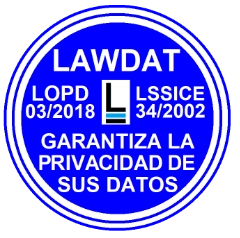Los Farsantes
farsante, farsanta
1.adj. colloq. Who pretends what he is not or does not feel.
2. m. and f. desus. Theater actor, especially in comedies.
1.-Los farsantes tells the story of two characters related to the world of cinema and theater. Ana Velasco is an actress whose career has stalled. After acting in small productions of classical plays, she now works as a Pilates teacher and on weekends she teaches children. Between television soap operas and alternative plays, Ana is looking for the great character that will finally make her triumph.
Diego Fontana is a highly successful director of commercial films who is now embarking on a major production: a series to be shot all over the world, with international stars. An accident will cause him to face a personal crisis and rethink his career.
These two characters are connected by the figure of Ana’s father, Eusebio Velasco, a cult film director in the 80’s, who now lives disappeared and secluded from the world.
2.Los farsantes are also several works in one: each of these stories has a particular style, tone and form.
Ana’s story has an eminently cinematographic style, with a narrator who guides us, and in which dream and reality are confused. Diego’s story is a more classical play, performed in more realistic spaces. And finally there is, by way of a break or parenthesis, an autofiction where the author of the work we are seeing defends himself against accusations of plagiarism.
These stories are told in parallel, they feed each other, they are mirrors of the same themes. The whole is constructed with chapters that are, to some extent, independent, forming a structure closer to the novel than to the theater. The intention is for “Los farsantes” to be an eminently theatrical narration, but with a novelistic and cinematographic aspiration.
3.Finally, Los farsantes is a comedy where only four actors travel through dozens of characters, spaces and times. A satire on the world of theater and audiovisuals, as well as a reflection on success and the roles we play, in fiction and outside of it.
Pablo Remón
1.adj. colloq. Who pretends what he is not or does not feel.
2. m. and f. desus. Theater actor, especially in comedies.
1.-Los farsantes tells the story of two characters related to the world of cinema and theater. Ana Velasco is an actress whose career has stalled. After acting in small productions of classical plays, she now works as a Pilates teacher and on weekends she teaches children. Between television soap operas and alternative plays, Ana is looking for the great character that will finally make her triumph.
Diego Fontana is a highly successful director of commercial films who is now embarking on a major production: a series to be shot all over the world, with international stars. An accident will cause him to face a personal crisis and rethink his career.
These two characters are connected by the figure of Ana’s father, Eusebio Velasco, a cult film director in the 80’s, who now lives disappeared and secluded from the world.
2.Los farsantes are also several works in one: each of these stories has a particular style, tone and form.
Ana’s story has an eminently cinematographic style, with a narrator who guides us, and in which dream and reality are confused. Diego’s story is a more classical play, performed in more realistic spaces. And finally there is, by way of a break or parenthesis, an autofiction where the author of the work we are seeing defends himself against accusations of plagiarism.
These stories are told in parallel, they feed each other, they are mirrors of the same themes. The whole is constructed with chapters that are, to some extent, independent, forming a structure closer to the novel than to the theater. The intention is for “Los farsantes” to be an eminently theatrical narration, but with a novelistic and cinematographic aspiration.
3.Finally, Los farsantes is a comedy where only four actors travel through dozens of characters, spaces and times. A satire on the world of theater and audiovisuals, as well as a reflection on success and the roles we play, in fiction and outside of it.
Pablo Remón
- Production: Centro Dramático Nacional and Buxman Producciones
- Direction and Author: Pablo Remón
- Cast: Javier Cámara, Francesco Carril, Nuría Mencía and Marina Salas
- Scenography: Monica Boromello
- Lighting: David Picazo
- Wardrobe: Ana López Cobo
- Sound Space: Sandra Vicente
- Assistant Director: Raquel Alarcón
- Executive Producer: Pablo Ramos Escola
- Production Direction: Jordi Buxó and Aitor Tejada
- Distribution: Caterina Muñoz Luceño
SHOWS
monday 7 november / 20:30 h
DURATION
150′ approximately
PRICE
Patio and club 25 €
Box seat 18 €
Amphitheatre 12 €
DESCUENTOS

Theatre voucher discount
180 €. 10 theatre tickets only in stalls seats and Club Seats.

University student discount
30% (all sectors and all functions where indicated)

Theatre students discount
(50% in amphitheatre for events to be allocated)

Discount for under 25s
25% (all sectors and in all functions where it is recorded)

Pensioners discount
25% (all sectors and in all functions where it is recorded)

Unemployed discount
15% (all sectors and all functions where indicated)

